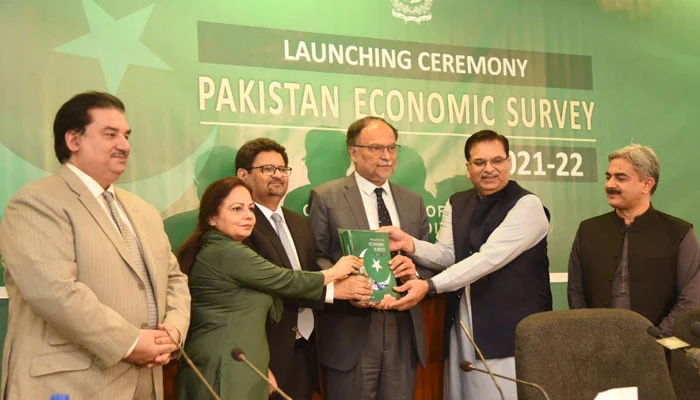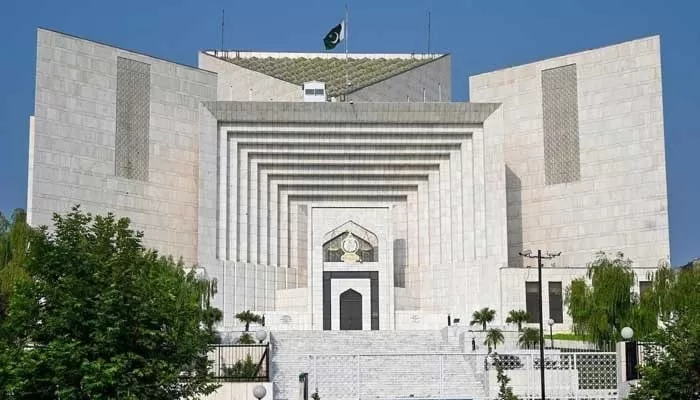It is crucial to shed light on Pakistan’s development crisis, exposing the shortcomings of the existing approach and emphasizing the pressing need for a new vision.
Pakistan sees itself hassle with a profound development crisis that demands immediate attention and transformative action. The prevailing standard of evolution has proven inadequate, leaving the nation in turmoil.
By addressing the core issues and reimagining a sustainable path forward, Pakistan can embark on a transformative journey towards a brighter future for its people. In this blog post, we will discuss the development crisis in Pakistan, its devastating impacts, and the new vision of political parties.

Overcoming Pakistan’s Development Crisis
Pakistan is currently caught in a cycle of intra-elite warfare, with figures like Imran Khan and Shahbaz Sharif representing models of development that have repeatedly failed to benefit the majority of the population.
The current standoff between Khan and the military may result in regime change. Therefore, this change fails to address the more severe crisis placed within the dominant vision of development in the country.

This vision, characterized by top-down, extractive approaches and a disregard for social and ecological impacts, has remained unchanged for decades.
Therefore to truly transform Pakistan, possible paradigms that prioritize; sustainability, inclusivity, and local knowledge must be explored.
The Devastating Impact of Development
While some improvements have been made in the duration of access to amenities and increased lifespans, the failures of the prevailing development model are far-reaching.
The catastrophic floods that emerged in 2010 and 2022 are evident as glaring illustrations of the severe ecological and social consequences. These floods result from this development trajectory.
Frequently, international institutions provide funding for Pakistan’s hydrological engineering projects. They ignored local knowledge and disrupted natural patterns, exacerbating flood risks.
Despite communities raising concerns and filing claims, recommendations to address these issues have been largely ignored, leading to avoidable tragedies.
Pakistan’s Need for a Fresh Vision For Development Crisis
For years, Pakistani elites and the international development establishment have pursued a vision of replicating the industrialized North, often referred to as “green pastures at the end of the rainbow.”
This approach focuses on increasing production and consumption primarily through large-scale infrastructure projects and cash-crop agriculture for export.
However, this model relies heavily on intensive energy use, primarily from fossil fuels. Therefore, it has led to severe social and ecological consequences.
The Paradox of Climate Change Blame for Development
Pakistan’s Ministry of Climate Change and country delegation to COP27 have rightfully blamed global heating for the floods. However, they often fail to acknowledge the complicity of the country’s development practices in worsening the effects of climate change.
Northern countries bear significant responsibility for environmental degradation. Pakistan’s reliance on unsustainable development has contributed to its vulnerability.
The consequences of this approach are evident in the form of social unrest, ecological disasters, and an overall failure to improve the lives of the majority of the population.
Therefore, understanding the link between unsustainable development and vulnerability in Pakistan is crucial. The influence of justice on the global stage contrasts sharply with the lack of concern for loss and damage within Pakistan’s borders.
Mega-Projects and the Obsession with Infrastructure
Pakistan’s development history is marked by what critical geographer Daanish Mustafa calls “mega-projectivity.” This disease, stemming from a commitment to colonial thinking, has plagued Pakistan.
It has led to the construction of extensive canal irrigation systems, dams, and other infrastructure projects.
The relentless focus on large-scale infrastructure projects, resource extraction, and export-oriented production has resulted in severe social inequalities and environmental degradation.
Despite financial constraints, the focus remains on building monumental structures rather than pursuing sustainable, inclusive alternatives. This approach further perpetuates social and economic inequalities but also intensifies environmental degradation.
Urgent Need for an Alternative Vision In Development Crisis
Pakistan requires a paradigm shift in its approach to development. The pressing challenge is to meet the needs of its 220 million population without externalizing costs onto the environment or marginalized communities.
However, there is currently a lack of alternative visions, with those in power, progressive intellectuals, and even the anticapitalist left failing to offer viable alternatives.
It is crucial to explore other ways of organizing and managing society, learning from experiences in Latin America and establishing emphasis on collaboration with local communities.
Sustainable Approach to Pakistan’s Development Crisis
While concerns about scalability indigeneity are valid, Latin America offers valuable insights into alternative development paradigms. In addition, it highlights the necessity of shifting our thinking to align with the globe rather than against it.
Furthermore, it also helps in valuing the knowledge and experiences of local communities. Breaking away from the notion that there is no alternative is paramount to overcoming the current crisis in Pakistan.
Conclusion
The ongoing intra-elite conflicts in Pakistan fail to address the more profound crisis rooted in the predominant vision of development. Moreover, the relentless disputes between figures like Imran Khan and Shahbaz Sharif in Pakistan may lead to regime change but they fail to address the more vigorous crisis that lies within the prevalent vision of development.
Replicating Northern industrialization and pursuing extractive mega-projects have resulted in social and ecological degradation. Additionally, they hinder the country’s progress towards a just and sustainable future.
The current development paradigm in Pakistan is marked by a top-down approach that prioritizes economic growth without adequately considering the social and ecological impacts.
Therefore, Pakistan must embrace alternative paradigms to recognize sustainability, inclusivity, and collaboration with local communities.
By challenging the status quo, exploring new models, and charting a course towards a more just and sustainable Pakistan, the nation can break free from the shackles of an outdated idea of evolution.






Great content
Pakistan Set to Secure IMF Funding in Promising Development - News Nation Wise